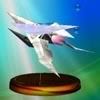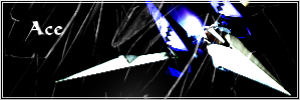Post by Donald J. Lester on Sept 9, 2007 10:33:16 GMT -8
An interesting development, that some may be interested in?
Though I am not sure this is where this should be posted...
Coalition forms to discredit Shakespeare's authorship
Last Updated: Sunday, September 9, 2007 CBC News
www.cbc.ca/arts/theatre/story/2007/09/09/shakespeare-authorship.html?ref=rss
A group of distinguished artists and scholars have formed a coalition to reopen the debate on whether William Shakespeare was the true author of the plays and sonnets that bear his name.
Renowned British actor Derek Jacobi and Mark Rylance, the former artistic director of Shakespeare's Globe Theatre in London, are among the 300 members of the Shakespeare Authorship Coalition.
The coalition questions whether William Shakespeare, illustrated in this 1623 engraving, could have written his works considering he grew up in an illiterate lower-class household.The coalition questions whether William Shakespeare, illustrated in this 1623 engraving, could have written his works considering he grew up in an illiterate lower-class household.
(Associated Press)
"I don't think anybody could do it on their own," said Jacobi, in reference to Shakespeare's 37 plays and 154 sonnets.
Jacobi and Rylance unveiled their coalition and the theories surrounding Shakespeare's authorship following a final showing on Saturday of I Am Shakespeare in Chichester in southern England. The play investigates the bard's identity.
The coalition, which includes English professors from several continents, suspects the real authors may be various writers such as Christopher Marlowe, Francis Bacon or the Earl of Oxford, Edward de Vere.
Shakespeare, who was born in the 1500s, grew up in an illiterate lower-class household. The coalition argues that that background hardly jives with his plays, which demonstrate detailed knowledge of language, the upper classes, an expertise in mathematics, history and law, and obscure references to places outside of England.
"An author writes about his own experiences, his own life and personalities," Jacobi said.
The actor, well-known for his turns in Hamlet and Richard II, and others also say there are no records Shakespeare received any payment or patronage for his writing.
The coalition also points to the fact that, in his will, the writer left his wife what he called "my second-best bed with the furniture," which the coalition said is hardly an eloquent turn of phrase, and did not mention any books or plays or poems.
The coalition also declared it has 20 prominent doubters from the past on its side including Orson Welles, Sir John Gielgud, Mark Twain and Charlie Chaplin.
The group, which is urging further researcher into its theories, presented a document listing its members and its mandate to William Leahy, the head of English at Brunel University in London. The institution is launching the first graduate program in Shakespeare authorship studies in September.
"It's a legitimate question: it had a mystery at its centre and intellectual discussion will bring us closer to that centre," said Leahy.
"It has been a battle of mine for the last couple of years to get this into academia."
Though I am not sure this is where this should be posted...
Coalition forms to discredit Shakespeare's authorship
Last Updated: Sunday, September 9, 2007 CBC News
www.cbc.ca/arts/theatre/story/2007/09/09/shakespeare-authorship.html?ref=rss
A group of distinguished artists and scholars have formed a coalition to reopen the debate on whether William Shakespeare was the true author of the plays and sonnets that bear his name.
Renowned British actor Derek Jacobi and Mark Rylance, the former artistic director of Shakespeare's Globe Theatre in London, are among the 300 members of the Shakespeare Authorship Coalition.
The coalition questions whether William Shakespeare, illustrated in this 1623 engraving, could have written his works considering he grew up in an illiterate lower-class household.The coalition questions whether William Shakespeare, illustrated in this 1623 engraving, could have written his works considering he grew up in an illiterate lower-class household.
(Associated Press)
"I don't think anybody could do it on their own," said Jacobi, in reference to Shakespeare's 37 plays and 154 sonnets.
Jacobi and Rylance unveiled their coalition and the theories surrounding Shakespeare's authorship following a final showing on Saturday of I Am Shakespeare in Chichester in southern England. The play investigates the bard's identity.
The coalition, which includes English professors from several continents, suspects the real authors may be various writers such as Christopher Marlowe, Francis Bacon or the Earl of Oxford, Edward de Vere.
Shakespeare, who was born in the 1500s, grew up in an illiterate lower-class household. The coalition argues that that background hardly jives with his plays, which demonstrate detailed knowledge of language, the upper classes, an expertise in mathematics, history and law, and obscure references to places outside of England.
"An author writes about his own experiences, his own life and personalities," Jacobi said.
The actor, well-known for his turns in Hamlet and Richard II, and others also say there are no records Shakespeare received any payment or patronage for his writing.
The coalition also points to the fact that, in his will, the writer left his wife what he called "my second-best bed with the furniture," which the coalition said is hardly an eloquent turn of phrase, and did not mention any books or plays or poems.
The coalition also declared it has 20 prominent doubters from the past on its side including Orson Welles, Sir John Gielgud, Mark Twain and Charlie Chaplin.
The group, which is urging further researcher into its theories, presented a document listing its members and its mandate to William Leahy, the head of English at Brunel University in London. The institution is launching the first graduate program in Shakespeare authorship studies in September.
"It's a legitimate question: it had a mystery at its centre and intellectual discussion will bring us closer to that centre," said Leahy.
"It has been a battle of mine for the last couple of years to get this into academia."




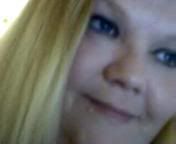


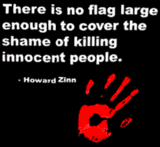
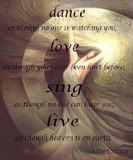




 While little is known about him the chances are that he WAS educated at Kings New Grammer School... his mother came from wealthy landed gentry and education was generally a must for people of their class in the 16th century.
While little is known about him the chances are that he WAS educated at Kings New Grammer School... his mother came from wealthy landed gentry and education was generally a must for people of their class in the 16th century.

